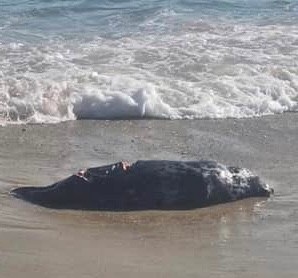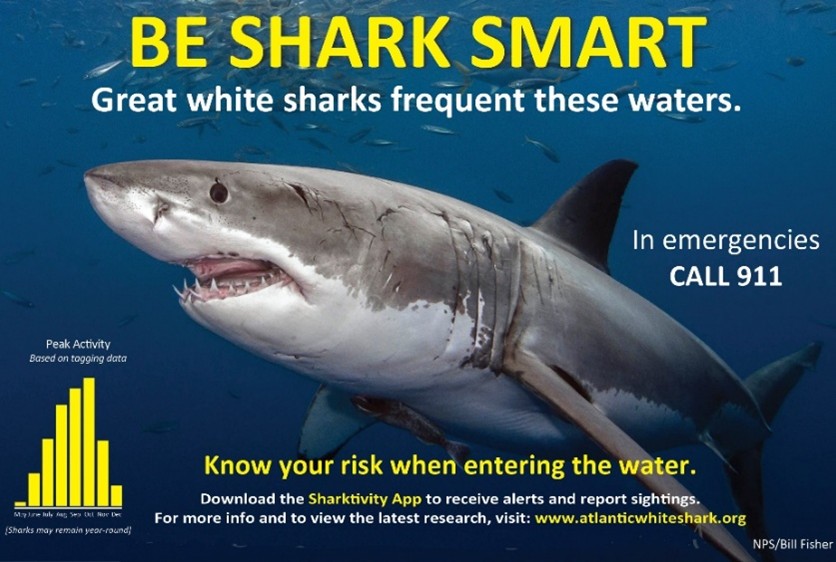Construction Update: As we enhance the look and feel of the Aquarium and make structural improvements to the penguin exhibit, some exhibits are temporarily closed, and the penguins are off exhibit until February 13. Learn more.
The Aquarium will be closed to the public on Thursday, January 22, for an internal staff event. Regular operating hours will resume on January 23.

BOSTON, MASS. (May 13, 2025) – The New England Aquarium is urging the public to be aware of their surroundings and report shark sightings after the first white shark of the season was confirmed in Massachusetts waters.
On Sunday, May 11, a witness noticed a pool of blood off Smith’s Point in Madaket on the western end of Nantucket, MA. The person then saw a seal swimming toward the beach with a shark following behind. John Chisholm, an adjunct scientist in the Aquarium’s Anderson Cabot Center for Ocean Life, examined photos of the seal’s wounds and confirmed that the bite came from a white shark.
“This is the time of year when we like to remind people to be ‘shark smart’ as white sharks return to the inshore waters of New England, where they’ll hunt seals and other prey through the summer and into the fall,” Chisholm said.
“Shark smart,” Chisholm says, means being aware of sharks’ presence in shallow waters, avoiding areas where seals are present or schools of fish are visible, and staying close to shore where emergency responders can reach you if needed.

The public can report sightings and stay informed on shark activity through the Atlantic White Shark Conservancy’s Sharktivity app. Sharktivity provides information and push notifications on white shark sightings, detections, and movements to raise awareness and help people and sharks co-exist. As part of a partnership between the New England Aquarium and the Atlantic White Shark Conservancy, Chisholm serves as Citizen Science Coordinator for the Aquarium, verifying shark sighting reports made by the public and identifying legitimate sightings to be posted on Sharktivity.
“Increased shark sightings can be a positive sign of a recovering marine ecosystem, but this recovery also means that people should take even more care while swimming or surfing,” said Dr. Nick Whitney, senior scientist and chair of the Anderson Cabot Center’s Fisheries Science and Emerging Technologies program. “Our work in the Aquarium’s Anderson Cabot Center focuses on balancing ocean use with preservation, meaning we recognize the importance of the ocean for human use while trying to reduce the impact of humans on sharks, and vice versa.”
The New England Aquarium has a team of nine scientists in the Anderson Cabot Center for Ocean Life who study sharks—from porbeagle and nurse sharks to thresher, blue, mako, sandbar, and sand tiger sharks. Over 15 shark species reside in New England waters depending on the time of year. The researchers’ work focuses on monitoring these animals using innovative tagging technologies, including satellite, acoustic, accelerometer, and camera tags to track the sharks’ habitat use, life history, and impacts of bycatch during commercial and recreational fishing activities.
MEDIA CONTACT: Pam Bechtold Snyder—617-686-5068; psnyder@neaq.org
